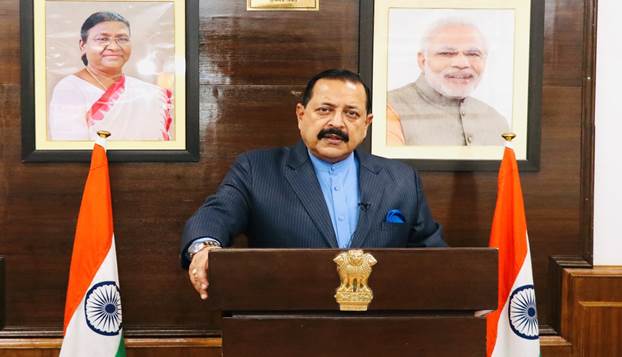The Union Cabinet, led by Prime Minister Narendra Modi, has greenlit India’s commitment to join the Biodiversity Beyond National Jurisdiction (BBNJ) Agreement. This decision marks a pivotal stride toward safeguarding and responsibly utilizing marine biodiversity beyond national boundaries, commonly known as the ‘High Seas’. These vast expanses of ocean are shared resources, accessible for lawful activities such as navigation, air travel, and the installation of submarine infrastructure. The Ministry of Earth Sciences will spearhead the implementation of the BBNJ Agreement across India.
 Dr. Jitendra Singh, Minister of State with independent charge for Earth Sciences, Science and Technology, and serving in various other ministerial capacities, affirmed India’s dedication to global environmental conservation and sustainable development. He expressed confidence in signing and subsequently ratifying the BBNJ Agreement through legislative processes. Dr. Singh underscored the government’s commitment to scientific advancement, international collaboration, and fostering governance, transparency, accountability, and adherence to the rule of law. The Union Cabinet endorsed this decision during its session on July 2, 2024.
Dr. Jitendra Singh, Minister of State with independent charge for Earth Sciences, Science and Technology, and serving in various other ministerial capacities, affirmed India’s dedication to global environmental conservation and sustainable development. He expressed confidence in signing and subsequently ratifying the BBNJ Agreement through legislative processes. Dr. Singh underscored the government’s commitment to scientific advancement, international collaboration, and fostering governance, transparency, accountability, and adherence to the rule of law. The Union Cabinet endorsed this decision during its session on July 2, 2024.
The BBNJ Agreement, recognized as the ‘High Seas Treaty,’ operates under the United Nations Convention on the Law of the Sea (UNCLOS). It responds to mounting concerns over the enduring preservation of marine biodiversity in these expansive maritime territories. The treaty establishes frameworks for sustainably managing marine biological diversity through global cooperation and coordination. It prohibits any sovereign claims over marine resources from the high seas, mandating equitable sharing of benefits. The agreement advocates an inclusive, ecosystem-centered approach grounded in the precautionary principle, promoting the integration of traditional and contemporary scientific knowledge. It introduces measures to minimize environmental impacts through area-based management tools and mandates environmental impact assessments. Additionally, it contributes significantly to achieving several Sustainable Development Goals (SDGs), notably SDG 14, which targets life below water.
Dr. M. Ravichandran, Secretary of the Ministry of Earth Sciences, highlighted the advantages for India, emphasizing the strategic opportunities beyond its Exclusive Economic Zone (EEZ). He anticipated enhanced marine conservation efforts, expanded scientific research and development initiatives, improved access to samples and data, capacity building, technology transfers, and broader collaborative endeavors benefiting global humanity. Dr. Ravichandran stressed that India’s endorsement of the BBNJ Agreement signifies a critical step towards ensuring resilient and thriving oceans.
Upon entering into force, the BBNJ Agreement will become the third implementation agreement under UNCLOS, alongside the 1994 Part XI Implementation Agreement and the 1995 UN Fish Stocks Agreement. UNCLOS, established on December 10, 1982, and effective since November 16, 1994, plays a pivotal role in protecting marine environments, defining maritime boundaries, regulating marine resource rights, and resolving disputes. It established the International Seabed Authority to oversee mining activities in oceanic regions beyond national jurisdictions. Currently, over 160 countries have ratified UNCLOS, crucial for maintaining equitable and orderly use of global oceans. The BBNJ Agreement, adopted in March 2023, remains open for signature until September 2023, aiming to achieve legal status 120 days after the 60th ratification, acceptance, approval, or accession. As of June 2024, 91 countries have signed the BBNJ Agreement, with eight Parties having already ratified it.




